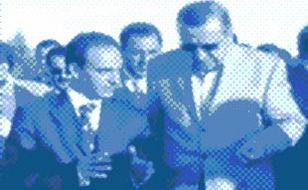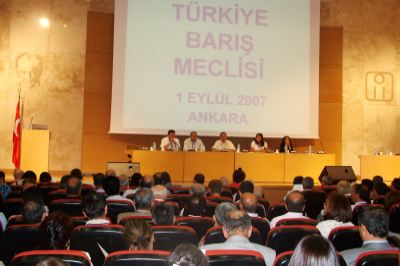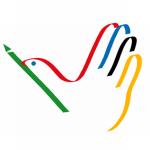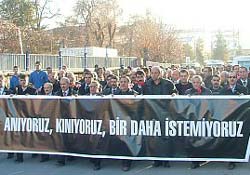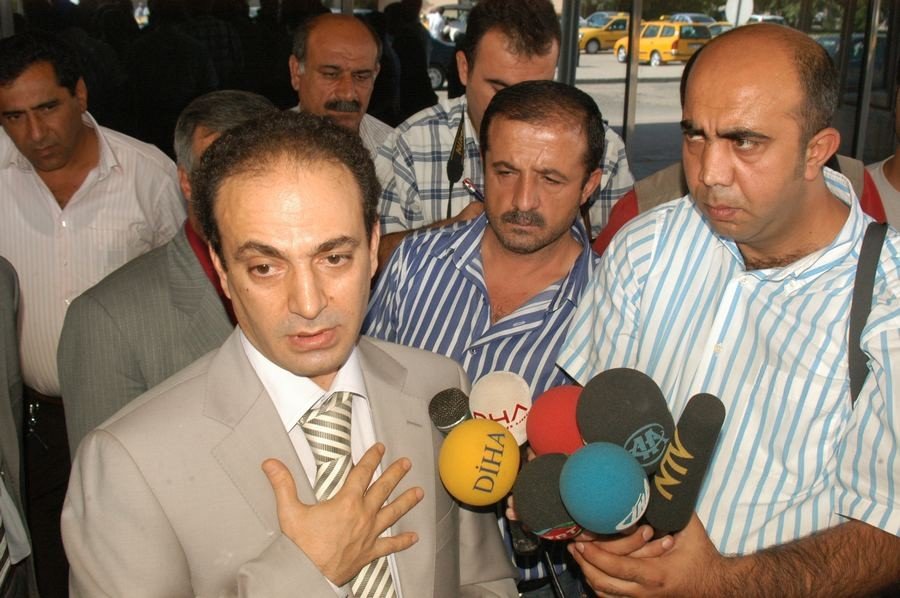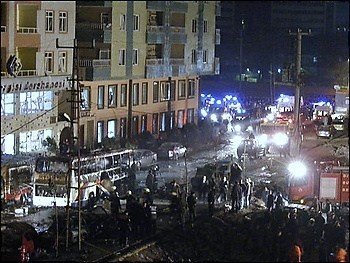The low levels to which politicians stooped in the pre-election campaign are being reevoked. The confrontational, intolerant, militarist and aggressive language cannot lead to the solution of even the simplest problem. Those who follow Turkish politics and media carefully know that such a use of language does not serve the future, nor the reputation of either side.
Only the extraordinary and friction are news
Experienced media professionals know that these type of news are not just a question of not adopting journalism ethics and political ethics. Rather, editors who change headlines at the last minute in order to make the extraordinary, not the ordinary news, contribute to journalists reading life in terms of friction.
Hürriyet monitors DTP
The "Hürriyet" newspaper has been monitoring the pro-Kurdish Democratic Society Party (DTP) ever since its independent candidates entered parliament after the 22 July elections and then reformed as a group.
The DTP has turned out to be a mine of news for the newspaper!
After years of writing about terrorism, Hürriyet has found a more creative perspective: "The DTP is not calling the PKK a terrorist organisation". We hope that the newspaper will create a base for solving the problem after pressurising the DTP!
Erdogan and Eker criticise Diyarbakir municipality
Before the elections, Prime Minister Recep Tayyip Erdogan had told functionaries of the Justice and Development Party (AKP), "I want Diyarbakir and Tunceli". And where are we now?
When other government representatives and AKP Diyarbakir MP Mehdi Eker criticised Diyarbakir's municipal services, a new "race to conquer the castles" started.
Diyarbakir mayor Osman Baydemir was infuriated by Erdogan and Eker's criticism. Saying that he had waited for two months ("according to democratic courtesy") and that he was now replying to an attitude which he found "outside of democratic courtesy and political ethics", Baydemir announced that he was "ready for the declared war."
"Ready for war"
Baydemir claimed that his municipality had been prepared for dialgue and for work from the beginning. He interpreted the governments attitude as a declaration of war, saying:
"Only yesterday and today you are trying to declare war on Diyarbakir. I say it clearly, we are here for dialogue, for collaboration. But if you do not join, and if you declare war on Diyarbakir, then I say clearly that the Diyarbakir people, me and my friends, will never run away from a declared war. If you declare war, we are here, the Diyarbakir people are here, the mayors are here. We have been with our people through good and bad times and we will continue to do so."
Unfortunate change of discourse
It is clear that Baydemir is angry at the "decades of neglect of the city", the "merciless criticism of services instead of offering financial support", and the planned abolition of the Diyar AS company which belongs to the municipality.
However, Baydemir's discourse unfortunately awakens doubts in his dedication to municipal services. The idiom he used onlyl serves to evoke a sense of a conflict along PKK-DTP-Diyarbakir lines and serves those who try to encourage this perspective.
Danger of war discourse
In his speeches Baydemir has frequently referred to peace. In an area where in the past only militarist projects were supported, he should be staying away from language which emphasises war.
What do you think the headline of the Hürriyet newspaper was? "Osman Bey has Overstepped the Mark". Underneath it says, "Mayor Osman Baydemir, who says that the AKP government has not supported a single project in Diyarbakir, has said, "If the Prime Minister declares war on Diyarbakir, I say 'come. We are here, we don't run away from war."
If even Baydemir has changed his normally peaceful discourse, how can we hope that the Hürriyet changes?
Of course the solution to this problem will never lie with investigations instigated by the Diyarbakir prosecution. A solution can only be found in the honest discussion of problems.
Need for "peace journalism" as alternative discourse
For instance, Assistant Professor Sevda Alankus has called for journalists to "make news items out of peace when conflict and war are in the headlines. A peace journalism which can be translated into every life is possible." (EÖ/NZ/AG)





